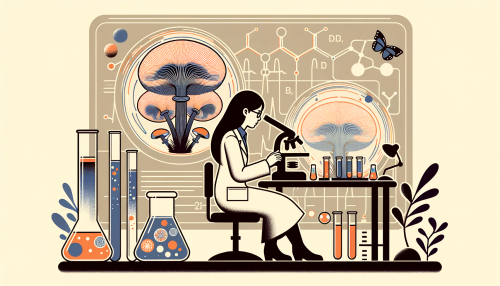Introduction
In the realm of health and wellness, the human gut has long been a subject of intrigue and study. The intricate ecosystem of bacteria, fungi, and viruses that reside within our digestive tract, collectively known as the gut microbiome, plays a pivotal role in our overall health. Recent scientific breakthroughs have shed new light on the profound influence of gut health on our wellbeing, potentially redefining wellness standards.
Gut Health Breakthrough

The latest breakthrough in gut health research has unveiled a fascinating correlation between the gut microbiome and various aspects of human health. This discovery has been made possible through advancements in genomic sequencing technologies, which have allowed scientists to map out the diverse array of microorganisms residing in our gut. The findings have been nothing short of revolutionary, revealing that our gut microbiome is not just a passive resident, but an active participant in our health.
The gut microbiome has been found to play a crucial role in digestion, nutrient absorption, and immune function. It has also been linked to mental health, with studies suggesting that the gut microbiome can influence mood and behavior. This has led to the emergence of the concept of the gut-brain axis, a bidirectional communication pathway between the gut and the brain.
Moreover, research has shown that an imbalance in the gut microbiome, known as dysbiosis, can contribute to a range of health issues, from obesity and diabetes to autoimmune diseases and even certain types of cancer. This has underscored the importance of maintaining a healthy gut microbiome for overall wellbeing.
Redefining Wellness Standards
The newfound understanding of the gut microbiome’s role in health has the potential to redefine wellness standards. Traditionally, wellness has been viewed through the lens of physical fitness and nutrition. However, the latest research suggests that gut health should be considered an integral part of wellness.
This shift in perspective could lead to a more holistic approach to health and wellness, where maintaining a balanced gut microbiome is as important as regular exercise and a balanced diet. It could also pave the way for personalized wellness strategies, tailored to an individual’s unique gut microbiome.
Furthermore, the focus on gut health could revolutionize the field of preventative healthcare. By monitoring and optimizing gut health, it may be possible to prevent or mitigate the onset of various health conditions, thereby improving quality of life and reducing healthcare costs.
Future Health Implications
The implications of the gut health breakthrough for future health are vast. As our understanding of the gut microbiome continues to evolve, it could lead to the development of novel therapeutic strategies. For instance, manipulating the gut microbiome through probiotics, prebiotics, or fecal microbiota transplantation could potentially be used to treat a variety of health conditions.
Moreover, the gut microbiome could serve as a valuable biomarker for disease risk. By analyzing the composition of an individual’s gut microbiome, it may be possible to predict their susceptibility to certain diseases, enabling early intervention and prevention.
The gut health breakthrough could also have profound implications for mental health. If the gut-brain axis theory holds true, optimizing gut health could potentially improve mental health outcomes, offering a new avenue for treating mental health disorders.
Conclusion
In conclusion, the recent breakthrough in gut health research has the potential to redefine wellness standards and transform our approach to health and wellbeing. As we continue to unravel the mysteries of the gut microbiome, it is clear that this tiny ecosystem within us holds immense potential for improving human health. The future of health may indeed lie in our gut.





